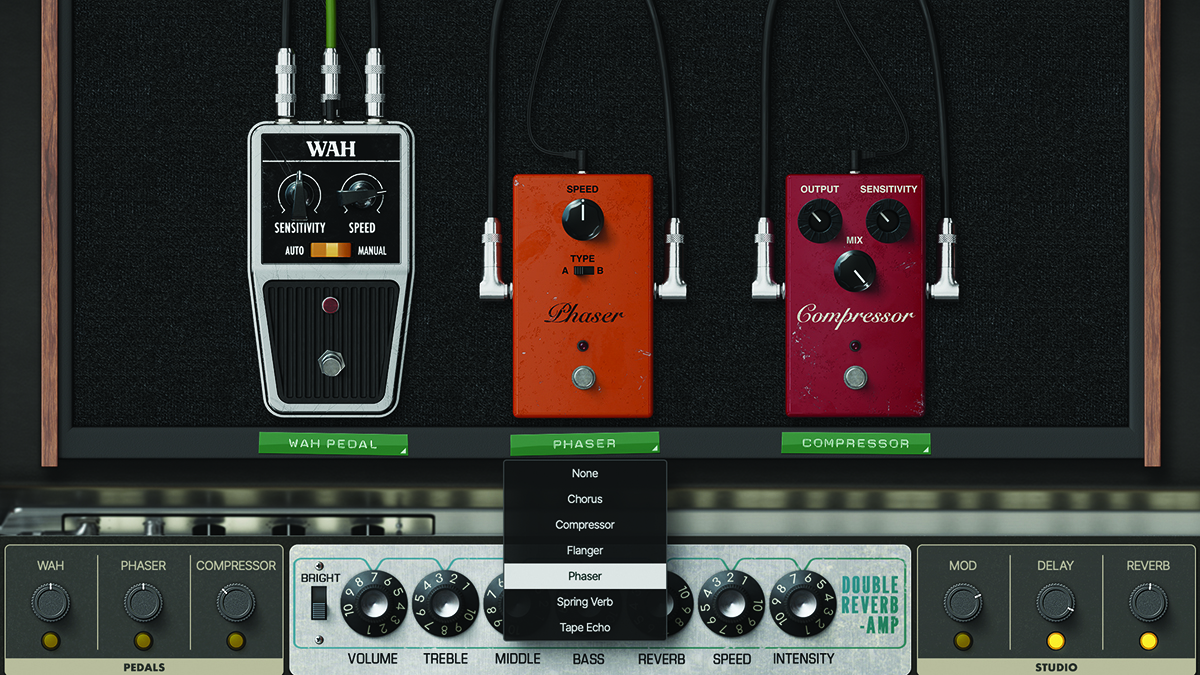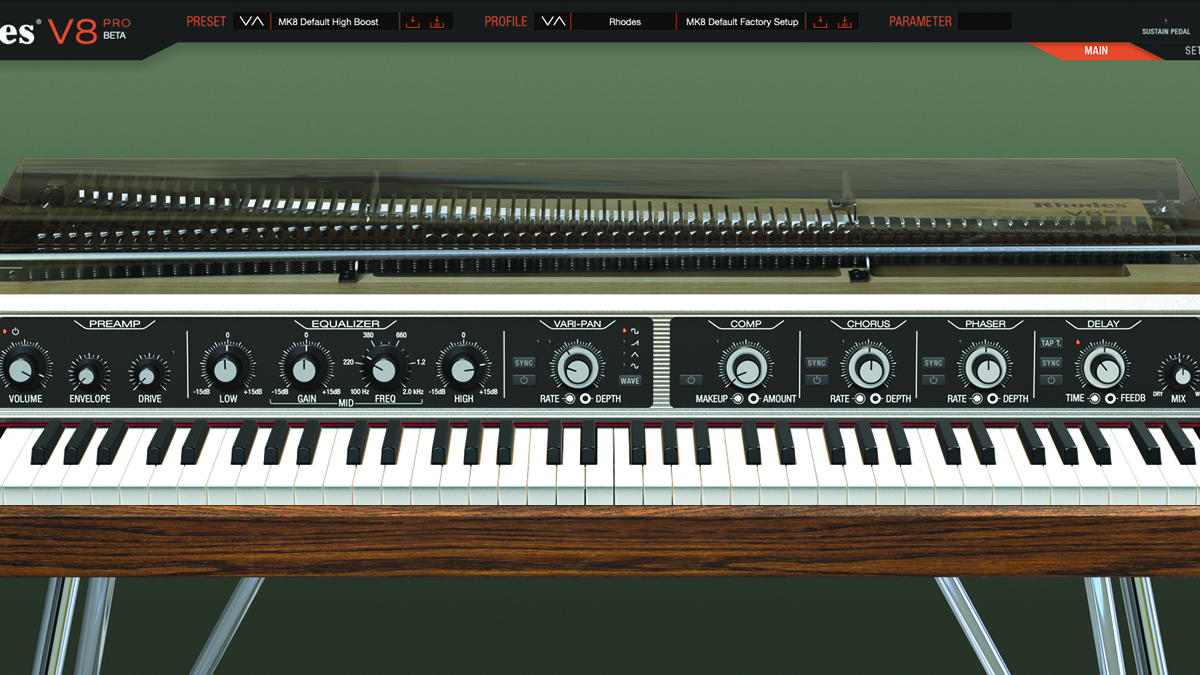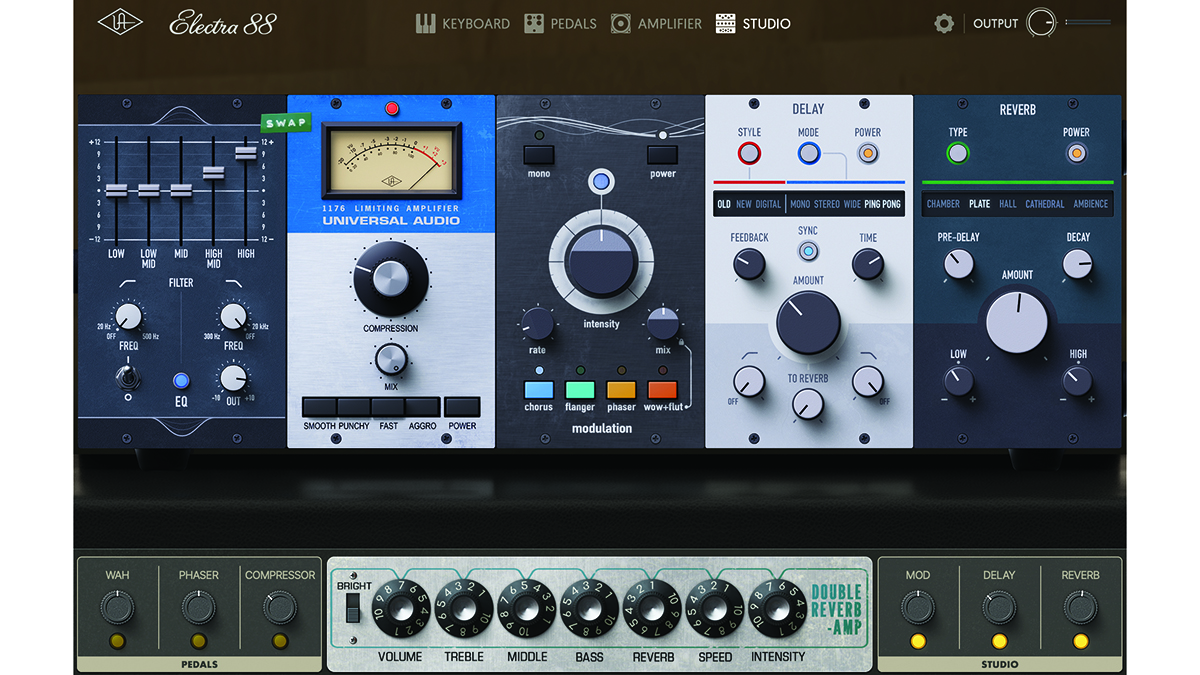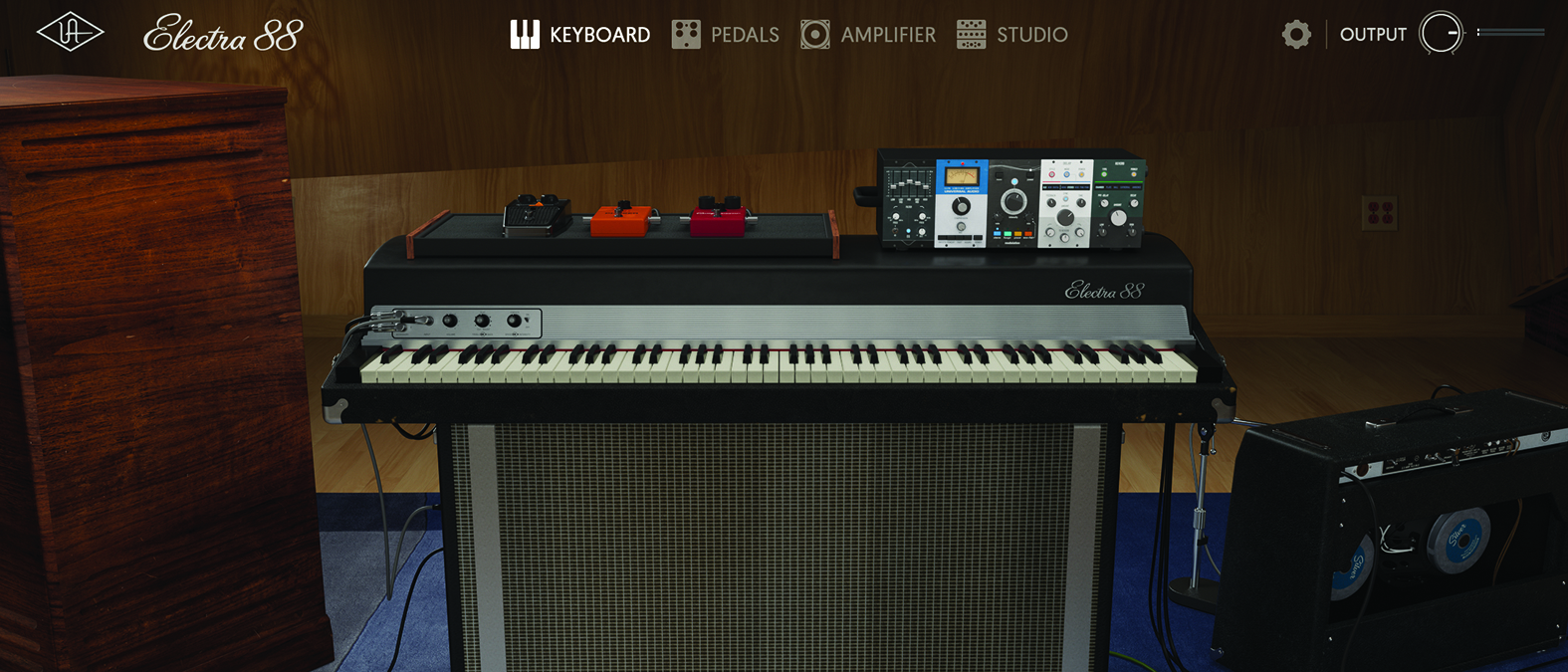MusicRadar Verdict
Electra 88 is a beautiful-sounding Rhodes with enough vintage gear to dirt up the sound or send it to dreamland. Much more flexible than a single instrument should be.
Pros
- +
What a sound – amazing.
- +
Love the studio effects.
- +
The amps are an education and flexible.
- +
And the pedals add some real grit.
Cons
- -
Not cheap.
- -
One or two preset-changing hiccups.
MusicRadar's got your back
Universal Audio Electra 88: What is it?
Runs on both macOS 10.15 Catalina or newer and Windows 10 and 11.
Universal Audio works with some of the biggest classic music gear brands to produce component-level software emulations of the highest calibre. Until earlier this year you needed UA hardware to run them, but in February UA announced three plugin bundles that ran natively in any DAW – no hardware required. Select plugins were also made available natively to buy individually and this list has been growing ever since.
This all-new Electra 88 is a brand new UA instrument, and an emulation of a 1974 Rhodes Eighty Eight Suitcase Mark 1 electric piano. It also runs natively in any Mac and PC DAW, and you can buy it for £$299 or as part of a UAD Spark subscription ($19/month or $149/year) this gets you Electra 88 plus more than 30 other native UA plugins.
At £$299 Electra 88 is one of the more expensive UAD plugins but it’s often discounted in the company’s sales – it’s half price as we write this. And Electra 88 is not just a piano emulation; its full title is ‘Electra 88 Vintage Keyboard Studio’ so it also includes studio effects, pedals and amps which can utterly transform your sound with gloriously vintage colour, dirt and flavour.

Universal Audio Electra 88: Performance and verdict
The signal setup of all of these sections flows left to right – pedals, amp and studio effects – with all the main levels controlled via the main screen. You can also focus in on each block by clicking the main UI options: Keyboard (shown above), Pedals (right), Amplifier and Studio (top right). This then opens another UI with extra parameters to tweak for each of the blocks.

• Rhodes V8 Pro
Great-sounding Rhodes and the Pro version gets you lots of effects to play with too.
• Spectrasonics Keyscape
Emulates many a keyboard instrument with lots of Rhodes-style content (and loads more).
Pedals, for example, open up a UI with three pedals on it and drop-down menus let you choose from Fil-Tron or Wah for the first, or one of six options each (Chorus, Compressor, Flanger, Phaser, Spring Verb and Tape Echo) for the second and third pedals.
We cover the Studio window in more depth below. That leaves the Amplifier Window, which again has three options to focus in on. This time you just get to choose one amp and mic setup combination which then appears back on the main Keyboard screen. These setups really do make a big difference to the sound because you get a wide range of options with each.
The Reverb Amp has one mic (choose from four types), two mic positions and two speaker types; the Suitcase Preamp has one or two mics (choose from four mics) and two positions; and the 147 Power Amp has three mic setups, two mics (choose from three or four types) and two mic positions. It’s clearer than that sounds when you play with them! We found the Reverb setup gave the most dramatic changes in sound, but all three give you a lesson in how mic positions and types really do make a sonic difference, and how these flexible setups allow you to make both nuanced and dramatic alterations to the presets.

The Electra Studio
The final right-hand main UI to open is the vintage studio which is packed full of ‘gear’ for you to play with. You can start with an EQ or swap this with a compressor in the signal chain. Both are tidy devices, with the compressor adding punch and colour, right up to distortion if you want, and the EQ veering into filter territory with its more extreme settings.
The Modulation block allows you to get your wobble on with everything from tape-like wow and flutter to less extreme pitch effects, mild chorus or deep phaser action. All of your Leslie-style needs are here should you wish. The Delay block features some important options for the classic Rhodes sound, with Ping-Pong, Mono, Wide and Stereo defining the type while Old, New and Digital deliver the style. Which leaves the reverb, with five types adding vintage plate sounds or room options. Like the other blocks, this one alone gives you huge flexibility, and in sync with the rest, Studio is a creative dream.
Verdict
The sounds of the piano’s 100+ presets are wonderful, ranging from solid and punchy electrics to absolutely dreamy reverb-laden pianos; swirling soupy vibratos to edgy, filthy or dusty hits. And we love the fact that you can search by musical descriptions or genres. And such is the diversity – and the huge potential to create other extreme sounds by way of the amps, effects and pedals – that there is something for any musical style here. We’re particularly looking forward to dropping some of the dreamy, reverb-soaked sounds onto some more ambient tracks we’re working on.
We had the odd hiccup having to close the preset window to hear changes, with our processor struggling slightly, but that didn’t detract from its beautiful sound. The piano and studio delivers a wonderful range and you will be creating yet more with the many options on offer. It sounds stunning, simple as that.
MusicRadar verdict: Electra 88 is a beautiful-sounding Rhodes with enough vintage gear to dirt up the sound or send it to dreamland. Much more flexible than a single instrument should be.
Universal Audio Electra 88: The web says
"It is the best Rhodes piano plug-in option for someone looking to balance features, depth, and realism with quick decision making."
Tape Op
Universal Audio Electra 88: Hands-on demos
Universal Audio
Andrew Masters
TheChrisVella
Universal Audio Electra 88: Specifications
- Runs on both macOS 10.15 Catalina or newer and Windows 10 and 11.
- CONTACT: Universal Audio
Computer Music magazine is the world’s best selling publication dedicated solely to making great music with your Mac or PC computer. Each issue it brings its lucky readers the best in cutting-edge tutorials, need-to-know, expert software reviews and even all the tools you actually need to make great music today, courtesy of our legendary CM Plugin Suite.
“Excels at unique modulated timbres, atonal drones and microtonal sequences that reinvent themselves each time you dare to touch the synth”: Soma Laboratories Lyra-4 review
“I used everything I knew about music”: How Green Day exceeded expectations with their most ambitious song
YouTube just added AI tools that makes musicians, library music and video editors redundant











